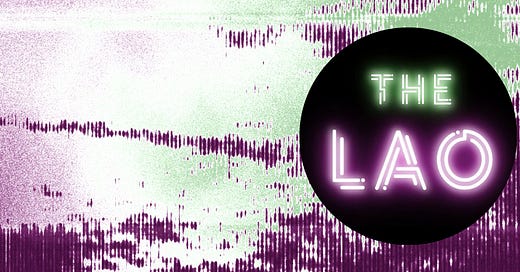In part one of this series, Aaron Wright recounted his past experiences in early DAO experiments, eventually to create the LAO and Flamingo. Today, we review his thoughts on the frameworks and principles that propelled those DAOs to success.
Wisdom of passionate crowds
“You know what I think we've learned with these DAOs; they don't have anybody in charge. No expert running them. So if you look at how venture capital fund works, there are one or two, or sometimes a handful of pre-ordained experts, who make most of the investment decisions. So they decide which projects to back.”
At the LAO and Flamingo, there is no one single person in charge. This also goes for the 13 other DAOs that Aaron helped set up and support. It is the will of the group that decides the future of the DAO.
DAO governance also helped identify key opportunities, whether in an artist or an NFT project. The great opportunities were often supported by many people, not just one person. So far, the wisdom of smart, passionate crowds has had a better batting average than expert-driven organizations.
Aaron explained that members hear of projects from different sources, including Twitter, Discord, and sifting through Hackathon winners. DAO members are constantly ingesting opportunities from all these various sources. If there is interest around a project, it goes up for a vote.
DAO Governance
The voting process follows mechanisms similar to the Moloch DAO framework. Moloch is a simple, open-source framework. Moloch's sponsorship, proposal process, and ability to ragequit make it unique.
Ragequit allows members to recover their prorated portion of un-deployed capital if they are unhappy with the direction of the DAO. This gives members an incentive to act well. This mechanism is written directly into the code, reducing coordination constraints around voicing disagreements.
This lightweight mechanism allows for capital to be committed quickly if a proposal receives more “yes” than “no” votes.
The Moloch DAO framework also defaults to action, meaning there is no quorum requirement. As opposed to more traditional governance where you need a certain number of votes for a proposal to be valid, Moloch does not need quorums. You only need a rough consensus for a proposal to move forward, similar to how the blockchain operates.
Anybody can put up a proposal; it just needs one sponsor. Then a voting period opens during which it is assumed that not everybody is paying attention, but those paying attention can weigh in. If there is a malicious actor, there is a cool-down period to mitigate malicious proposals.
Aaron believes DAO mechanisms have and are going to evolve. When decision-making had to be quick, Aaron's team built tools for DAOs to make quick decisions on specific actions. One good example of this is in Flamingo: if something is put up as a potential acquisition, the members just give a “thumbs up”, and it is acquired.
The default timing in the Moloch framework is a 7-day voting period and a 7-day cool-down period. With the Tribute DAO framework, each DAO can modify the time periods based on their needs. It is now more typical to see 2-3 day voting periods to help take action faster. Especially when thinking about buying NFTs with a moving floor, timing is essential.
In the case of Flamingo, for example, members have been approved or authorized to pick up NFTs on behalf of the DAO and get reimbursed. This is what enabled Flamingo to become a top-ten holder of Bored Apes. A member acted individually to pick those up at mint price and contributed to the DAO.
In any DAO, disagreements and disputes are inevitable. The Moloch framework helps manage conflicts, but Aaron and his team have also developed the Tribute framework, where all members have substantial minority rights. Aaron also believes that cultural norms within DAOs have helped in handling disputes. Usually, things do not go up for a vote unless there is enough evidence from conversations that it has support.
An advantage to having a network of DAOs is that new DAOs can inherit the best qualities from the network. Aaron’s group will not start a DAO unless there is sufficient consensus from the existing members. There is also a group of folks that join all the DAOs, which gives any new DAOs the same successful governance structure as do the previous ones.
NFT Collectives
Aaron's final words of wisdom on the topic of DAO frameworks left us excited and encouraged to continue to innovate and find new ways to provide value in DAOs:
"I've never been interested in blockchain stuff to replicate what we have in the past. If you want to build a system governed by boards and quorum-based voting, we have an optimized way to do that: a corporation. They're great in many ways, but you're not going to do anything new or different.”
At SZNS, we want to provide the tools for others to build successful and meaningful DAOs as did Aaron. Our mission is to make those tools available to everyone.
SZNS is gearing up for its public launch soon. Follow us on Substack, Twitter and Discord as we build the ultimate tool for NFT collectives.




